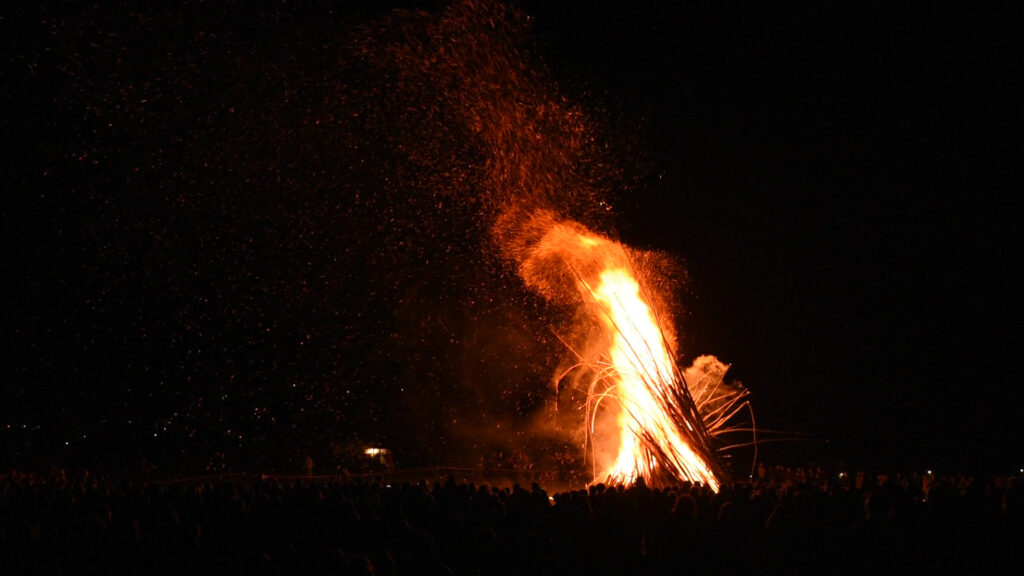Spiritually aware individuals, i allege (if you’re anything like me, please tell me i’m not alone in this), carry a sense of lack; perceiving a shortfall between what could and should be possible, and what is actual. If i were able to approach every situation with full awareness of purpose and the applicable instruction set, I could redeem my soul progressively and become a willing and able agent in my Maker’s hand. Lamentably though, I often fail at this, due to lack of focus and minding. (I deliberately avoid the term « mindfulness », as the mind can be full of many things, some helpful, some less so.)
It is natural to project the desire to be adequate and effective onto a perfect example or paragon. Other religions also have this, with their masters and gurus: while not necessarily perfect, they are mother/father figures, admired and looked up to. We hear and believe that they are on a much higher spiritual level, fighting battles and performing deeds we cannot even fathom. And while they do so, they appear to become ever calmer, more composed and clearer of mind. Not few of them have become considered manifestations of the divine, some in retrospect, some already during their lifetimes. A subset of these were also brutally murdered by forces of evil, and were “seen”, after their deaths, by their followers.
Our minds tend to take concepts to the extreme: it becomes compellingly attractive that there should be one perfect example, who breaks all boundaries and pleases the Maker fully, and thus can redeem all of us, if we claim allegiance to him, our hero, and place him before us. As an ideal unattainable yet immensely desirable, this figure becomes our idol: a God-man who overcomes everything, including death. Partaking in the rituals surrounding the hero’s death and resurrection becomes initiation, the belief in the risen hero that lives but is not seen other than in visions, becomes a test of our faith and imagination.
It is obvious that a religion that caters to these our deepest spiritual needs and desires will become successful. Nevertheless, deifying a human and postulating that this God-man gave himself voluntarily in vicarious atonement as a human sacrifice, still is no less idolatry.
I have now come to believe that the Maker made this singularity out of perfect unity and oneness into immense complexity, in order to generate an experience of apparent “limitation”. This means, the shortfall is factored in, and the redemption occurs progressively and continuously. In a perfect world, no redemptive work would be possible, as there would be nothing left to perfect. The ideal human is an archetype, that can serve as a moral ans spiritual guide (“What would Jesus do?”) but that cannot exist physically in a fallen, or lowered, creation. The conviction that the ideal has to exist, since we can imagine it, is Platonic in origin. It makes a lot of sense from a human perspective. But independent of perspective – human or divine –, purely ontologically, a priory, perfection cannot exist in a world that has not yet been perfected.
The paragon who masters all challenges would have to become divine by transcending the physical – as was believed initially (“low Christology”), but in order to do that, without accumulating any initial failure or guilt, he would have to be divine from the beginning (“high Christology”) – our minds again deduce that it must be so, and through re-telling and imaginative embellishment set the idol on an ever higher pedestal.
By doing so, paradoxically, we also increase the distance between him “up there” and us “down here”. How can I be expected to follow a being who was divine from the start, and thus incompatible with impurity? Idol worship is meant to connect (re-ligate) us to the ideal, but the higher the expectations get, the more I have to rely on the transcendence of the idol to pull me upwards supernaturally.
If my goal is to be the best version of myself today, in line with what I learn and understand about divine instruction, then I remain able to walk. That mirage of perfection that I am supposed to imitate becomes not only impossible, but harmful. I will eternally mourn my shortcomings and accuse my Maker of making me deficient, while the ideal I was supposed to follow was created perfectly. If perfection had already been achieved by even one individual in history, and this is all it took to redeem all of mankind, then what would still be left to do for me? If, however, I believe that we are all in this together, not yet perfect but striving upward together, there is a possibility for me to partake and contribute.
2024-02-06 “Why Christianity”

